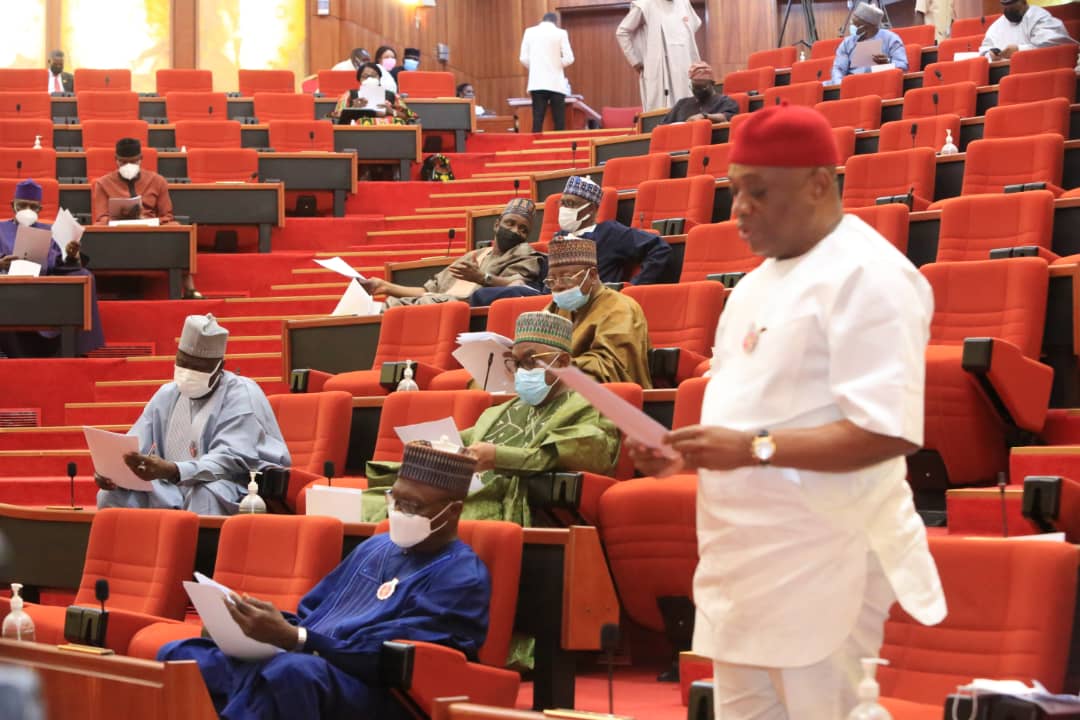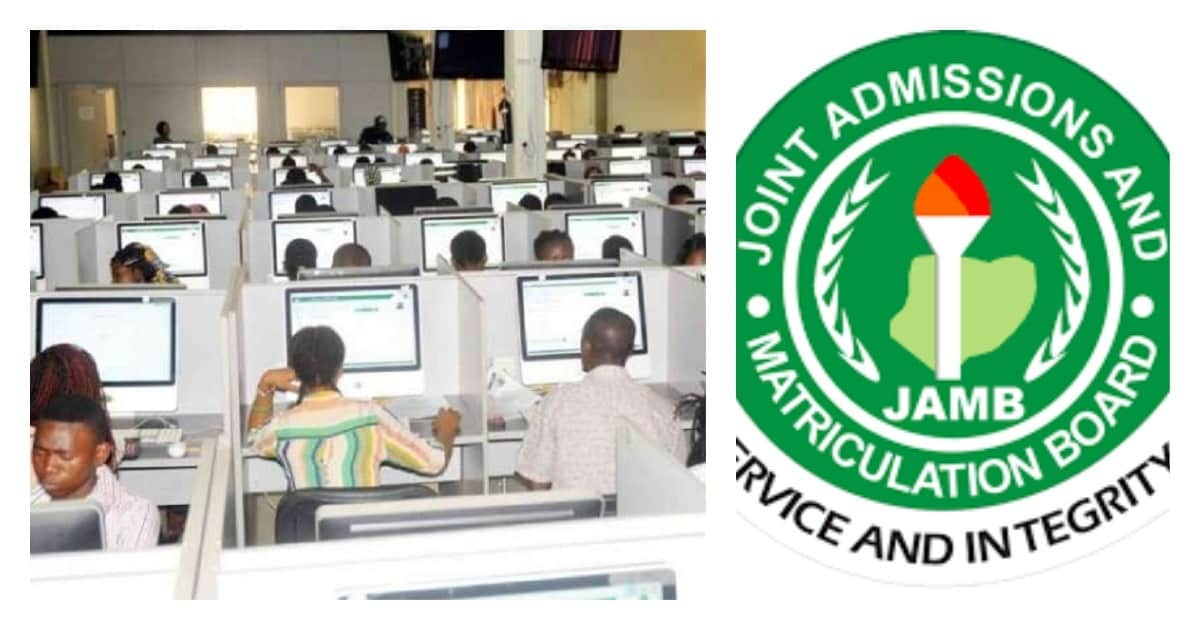A Bill proposing some amendments to the Administration of Criminal Justice Act (ACJA) of 2015 sponsored by Chief Whip of the Senate, Dr. Orji Kalu on Wednesday scaled second reading.
The Bill entitled, ‘Administration of Criminal Justice Act 2015 (Amendment) bill, 2020′ was first introduced to the Senate in June, Wednesday 2020 after Nelson Ayewoh, Senate Clerk, read its short title.
According to a lead debate by the sponsor of the bill, Senator Orji Uzor Kalu (Abia North Senatorial District) during Wednesday’s plenary, pointed out that it is also worthy of note that this would be the first time an attempt is made to amend the law since it became an Act in 2015.
Kalu said the bill seeks to redress Sections of Act, contradicting the principles of fair hearing and court jurisdiction as provided in the Constitution. He stressed that it is to further avert some loggerheads between the administration of criminal justice Act and the constitution.
https://youtu.be/3JznFJOX4NY
“The following Mr. President are some of the recommendations: 1. That Section 8 (4) of the Principal Act which provides“The arraignment and trial of a suspect for a crime shall be in accordance with the provision of this Act unless otherwise stated in this Act” be amended by deleting “unless otherwise stated in this Act” by inserting “and the constitution of the Federal Republic of Nigeria.”
“The reason is that the Constitution the Supreme law of the land provides in section 1(1) as follows; This Constitution is supreme and its provisions shall have binding force on all authorities and persons throughout the Federal Republic of Nigeria,”
“In view of the above provision of the constitution, all authorities in Nigeria shall conform to the constitutional provision, Therefore the administration of criminal Justice Act shall also conform with the supreme provision of the constitution 1999 as amended, Kalu said”.
Speaking further, Kalu explained that the court has held that the 1999 Constitution as amended is the fundamental law on which every law in Nigeria rests. Moreso, the Supreme Court per Fabiyi JSC on the Supremacy of the constitution of the Federal Republic of Nigeria states that “ The Constitution of Nigeria is the grundnorm, otherwise known as the basic norm from which all the other laws in the society drive their validity.
He held that each legal norm of the society derives its validity from the basic norm stressing further that other law that is inconsistent with the provisions of the constitution must-give way or abate.“ The former Abia Governor held that the Court has also held that“The constitution of a nation is the ‘fons et origo’ not only of the Jurisprudence but also of the legal system.
In his words; section 253 of the Constitution provides “The Federal High Court shall be duly constituted if it consists of at least one Judge of that Court”.
“Furthermore, section 273 provides “for the purpose of exercising any jurisdiction conferred upon it under this Constitution or any law, a High Court of a State shall be duly constituted if it consists of at least one Judge of that Court,” Moreso, the Court of Appeal has held as follows that the provision of Section 273 of the Constitution of the Federal Republic of Nigeria,1999, a simple judge sitting in the High Court is qualified and had the power to try criminal offenses.”
“Reading the provisions of Sections 253 and Section 273 together with Section 237 of the Constitution 1999 as amended, which clearly spelt out the composition of the judges of the High Court, the Court of Appeal and the powers to hear and determine matters before them equally provided for by the same constitution. The Constitution should be read together on provisions with establishment, composition, and jurisdiction of courts”
Shedding more light in his lead debate, Orji Kalu elucidated that the various High Court Rules and Court of Appeal Rules have provisions with regards to the position of pending cases, when judges are elevated.
Giving instances Kalu said more often the position is for the matter to start denovo. However, to allow a Judge who is elevated to a Court of Appeal to determine cases before him, while a High Court Judge will raise the issue of jurisdiction. Although the constitution says in Section 252(2) that the National Assembly will by law make provision conferring upon the Federal High Court additional powers to those conferred by the Constitution, yet there exists a lacuna in respect of the position of an elevated judge from the High Court to the Court of Appeal(that is there is a gap that needs to be filled).
Explaining further to his colleagues Kalu said that it is advisable that the constitution be amended to expressly handle the gap created when judges are elevated to the next bench be given the right or powers to conclude part-heard cases on elevation before moving to the next level. In view of the aforementioned, Kalu submitted that a Constitutional amendment is the best option to take care of such lacuna. He said that further general observation, our judicial system recognizes and applies the rule of stare decisis, meaning rules of precedent and hierarchy of courts.
Lending his support to the bill, Senator Gabriel Suswam opined that the entire section of the Criminal justice act is defective, he however commended Senator Orji Uzor Kalu for the bill but added that it is imperative to amend the bill holistically.
In his words ” it has become imperative to amend the Criminal justice act, it’s not just about amending some sections as proposed by the sponsor of the bill. There are a lot of mistakes in the Act and people have been unjustly convicted because of the mistakes that have been found in the Act but because they have not been challenged up to the supreme court. We now have the singular opportunity to as proposed here to correct those mistakes. I have interacted with a few judges who came to see me and most of their complaints bothered the Administration of the Criminal Justice Act.
Suswam also stressed that most states have refused to domesticate the ACJA due to the fact that it has failed to meet up with the aspirations of the state. He said it is important to amend the entire Act, not just it’s sections.
The Senate invoice vote presided over by the Senate President, Ahmed Lawan passed the bill for second reading and was referred to the Senate Committee on Judiciary, Human rights, and legal matters to report back within four weeks.










